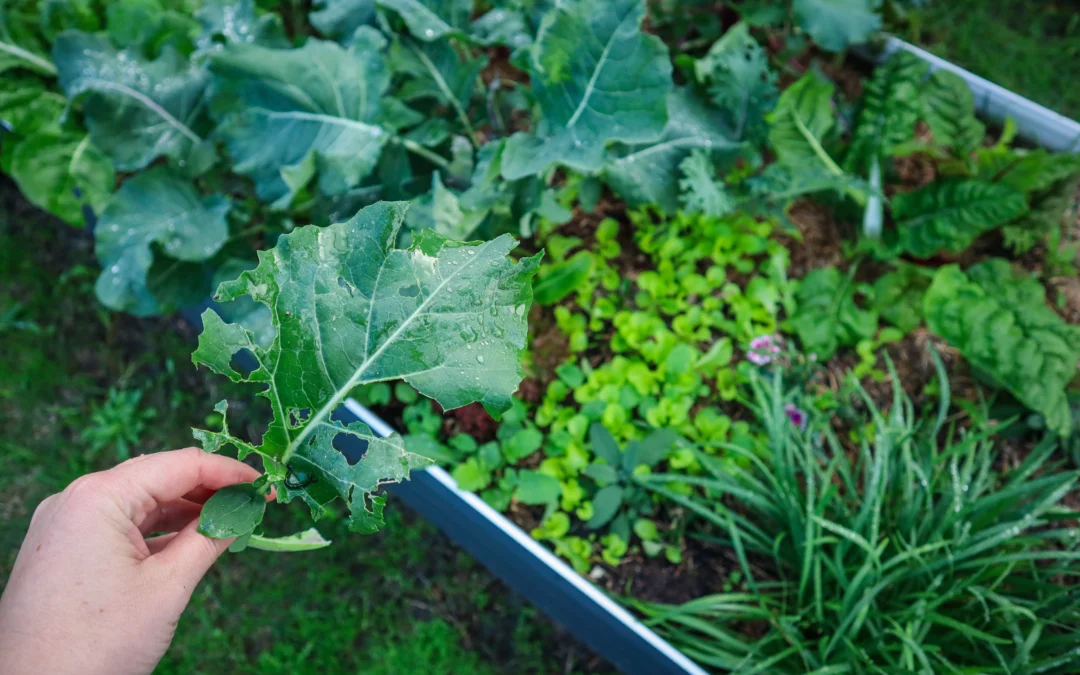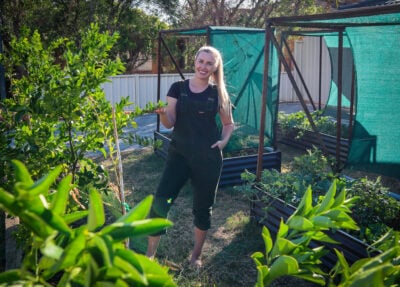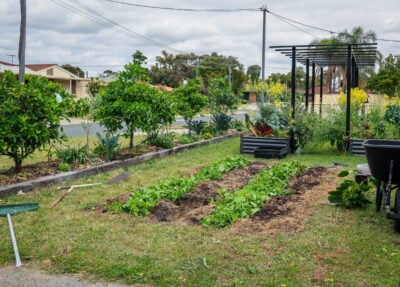Simple, Spray-Free Solutions for Veggie Garden Pest Problems
Just when you think the garden is looking good, the bugs show up in force! I often get asked why the bugs don’t eat my veggie garden, but the reality is they definitely do! If they weren’t, I’d be more worried! Because if the bugs aren’t eating your veggie plants, it means your garden isn’t part of the ecosystem. A few nibbles here and there are normal. Even a good sign that your garden is healthy, alive, and balanced. But.. when pests start taking more than their share, these easy & natural solutions will help you control bugs in your veggie garden.
Top Tips for Controlling Bugs in the Veggie Garden
These tips are just second nature to me now, and combined, they reduce the pests in my veggie garden. Allowing me to harvest more of my food without any harmful chemicals or sprays. Each year, this helps improve the strength and resilience of my garden and results in less work for me. I hope these simple solutions help you grow more of your own food at home naturally and sustainably.
Remove the lower leaves
This helps stop slugs, snails, and other crawlers from getting easy access. I check my raised beds every few days. Pick off the lower leaves, both good and the sad, bug-bitten leaves. This allows more light (bugs like slugs and snails love dark, shady, wet spots) and reduces the amount of natural “ladders” up to your veggies. You can always clean off and use your holey veggie leaves to make a delicious, nourishing green soup or garden pesto.
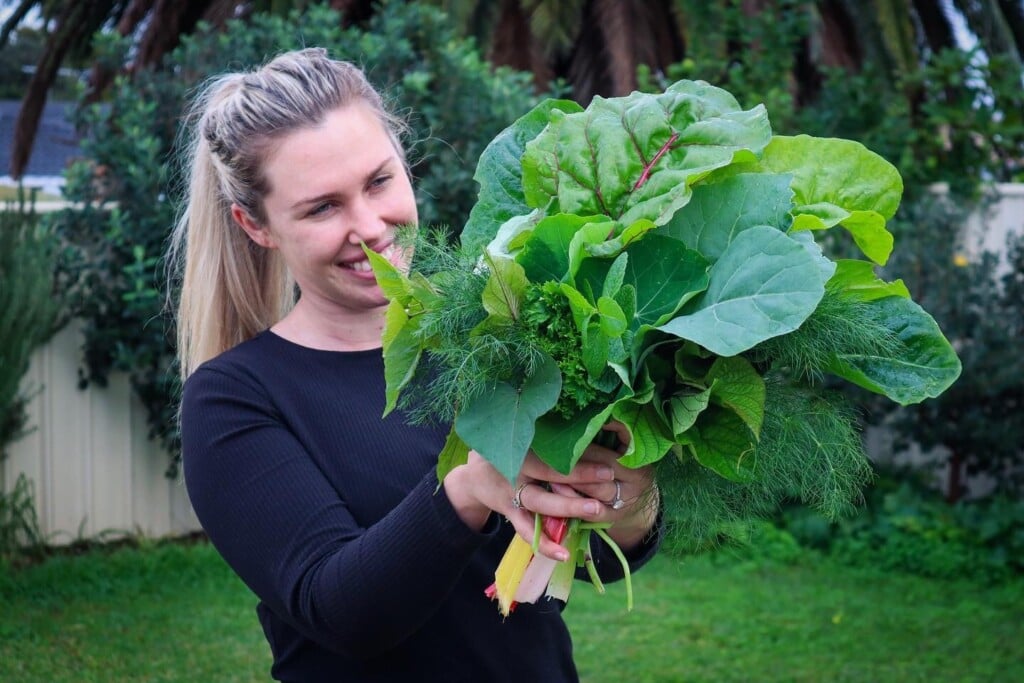

Outplant the pests
This is probably my top tip and my favourite one! If bugs are hitting one patch hard, I just plant more! and randomly… I always interplant different things, so I’m not offering up a buffet of their favourite foods. The idea is to overwhelm the pests with too much choice and increase your chances of getting a harvest. It works especially well with fast-growing seeds like radishes, asian greens, and lettuce. Saving your own seeds is a great way to have more than enough to go around. So you aren’t so precious about using too many seeds or relying on the 6 seedlings you have purchased.
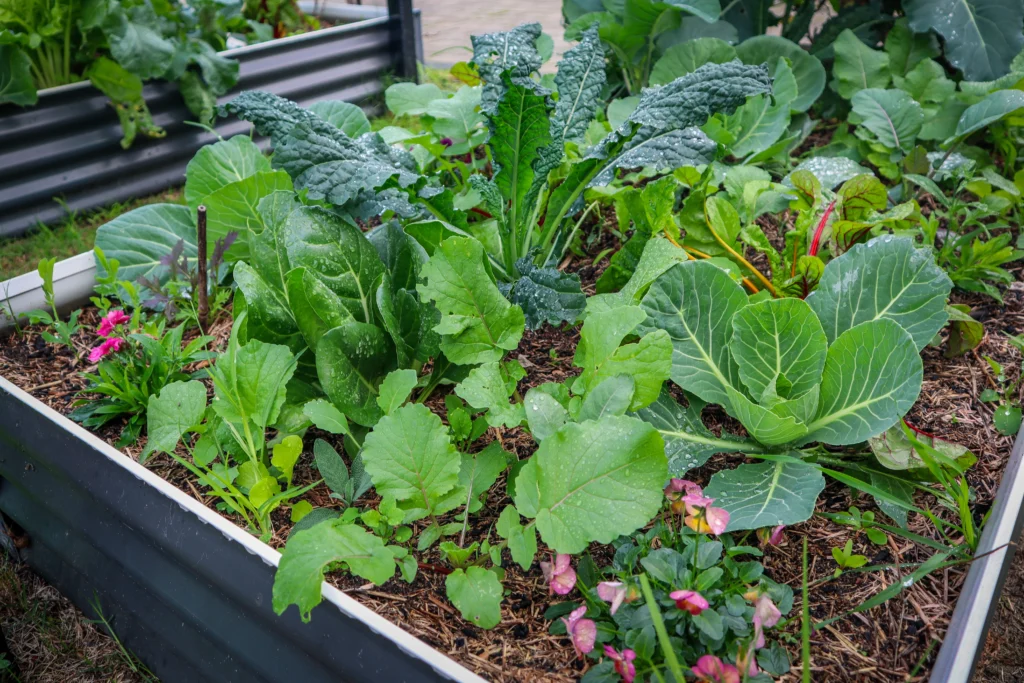
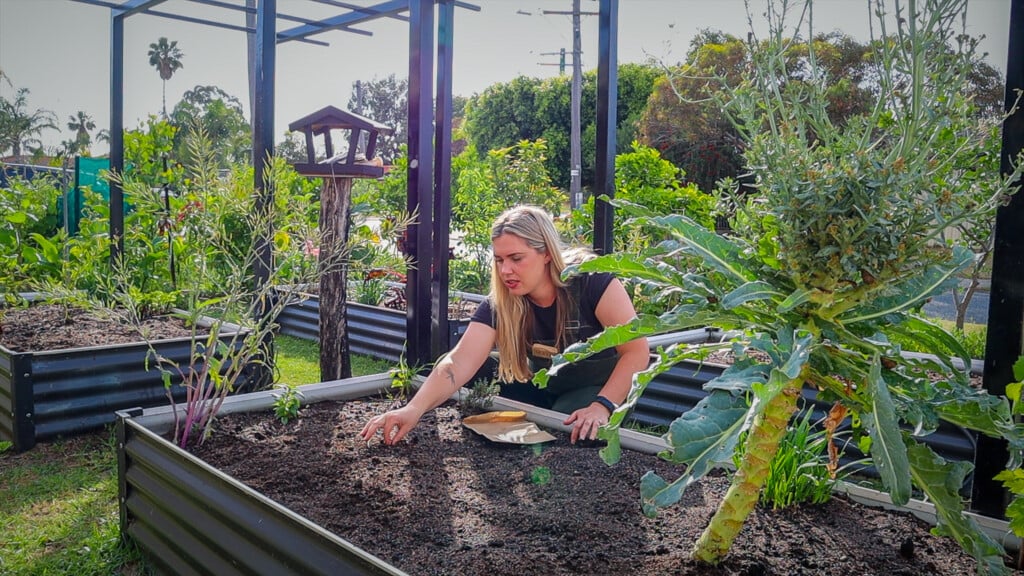
Sprinkle used coffee grounds
Many bugs hate crawling over gritty textures. I’ve been collecting used coffee grounds from my local cafe for years. By sprinkling them around the base of plants and even fully over young seedlings, I found my losses greatly reduced! It works really well to protect young seedlings from getting ring-barked by slaters/roly-poly, too! It’s free, reduces waste, and adds organic matter too!
Keep your plants well-fed
Healthy plants recover faster from pest attacks and are less likely to get smashed. Top up with liquid compost, worm castings, or even just a light mulch of compost to keep your plants thriving.
Relax and let a few “sacrificial” plants go
Sometimes the best defence is distraction! If a few plants just keep getting hit, I let them go and leave them as sacrificial plants. These often allow good predator bugs like Ladybugs or even birds to come visit the patch. The bugs often will focus on plants that have already been eaten…keeping them off your other healthy plants. It’s a simple way to work with nature and keep the peace in the patch.
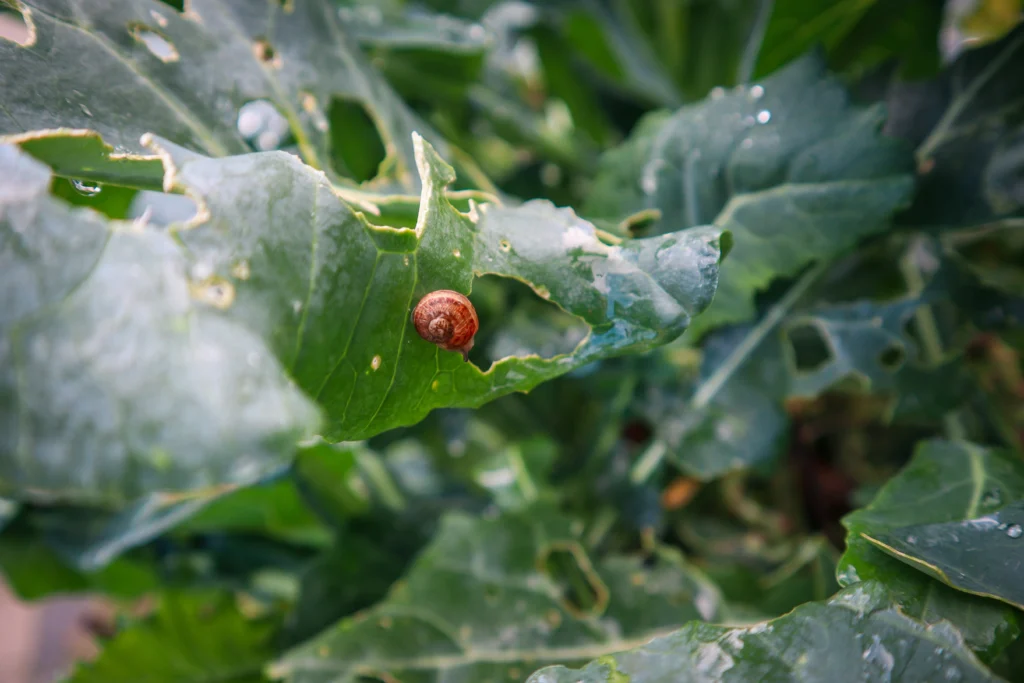
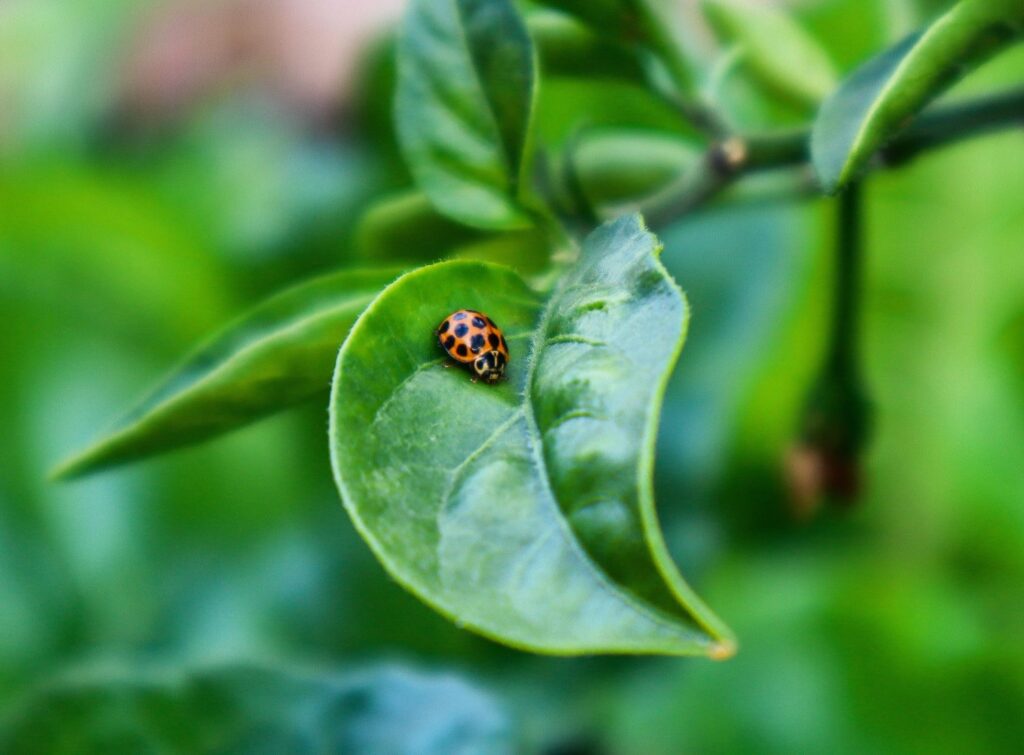
Diversity makes it harder for the bugs
I focus on encouraging diversity in all my gardens. I do not plant the same thing all in one bed because if the bugs show up in my veggie garden and decide they like that plant… I’ve just made an easy-access all-you-can-eat buffet for them! Spreading them throughout different gardens makes it harder for the bugs and results in more food for me! Interplanting strong plants such as onion, chives, garlic, or leeks also helps confuse and ward off the bugs. Spreading plants out also reduces the nutritional depletion in the soil, as each plant takes different nutrients from varying depths due to their root growth and nutritional needs.
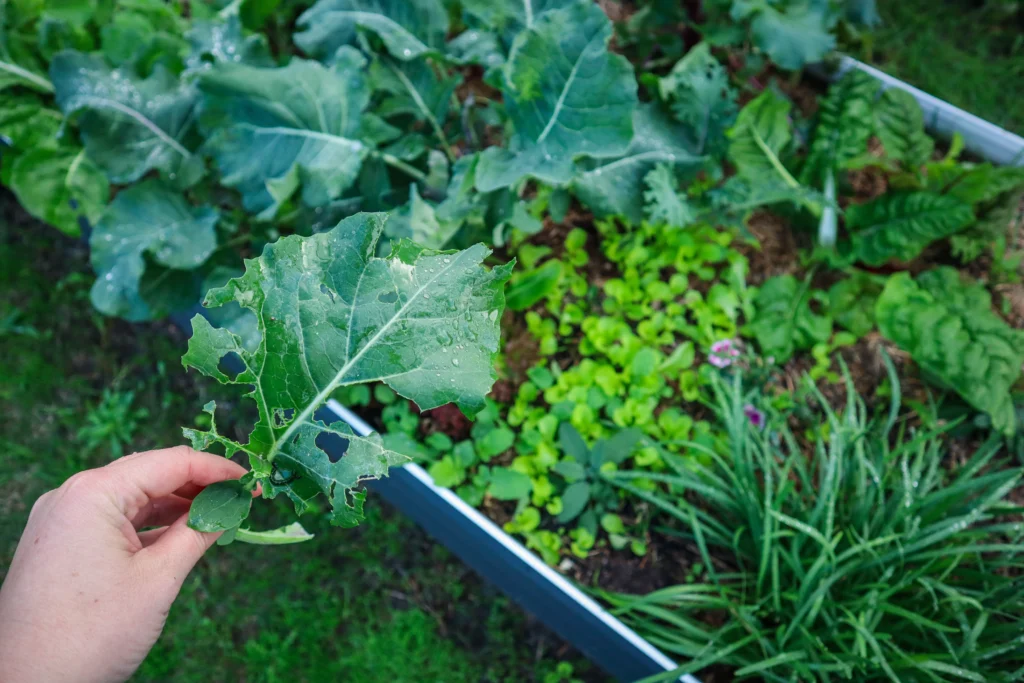

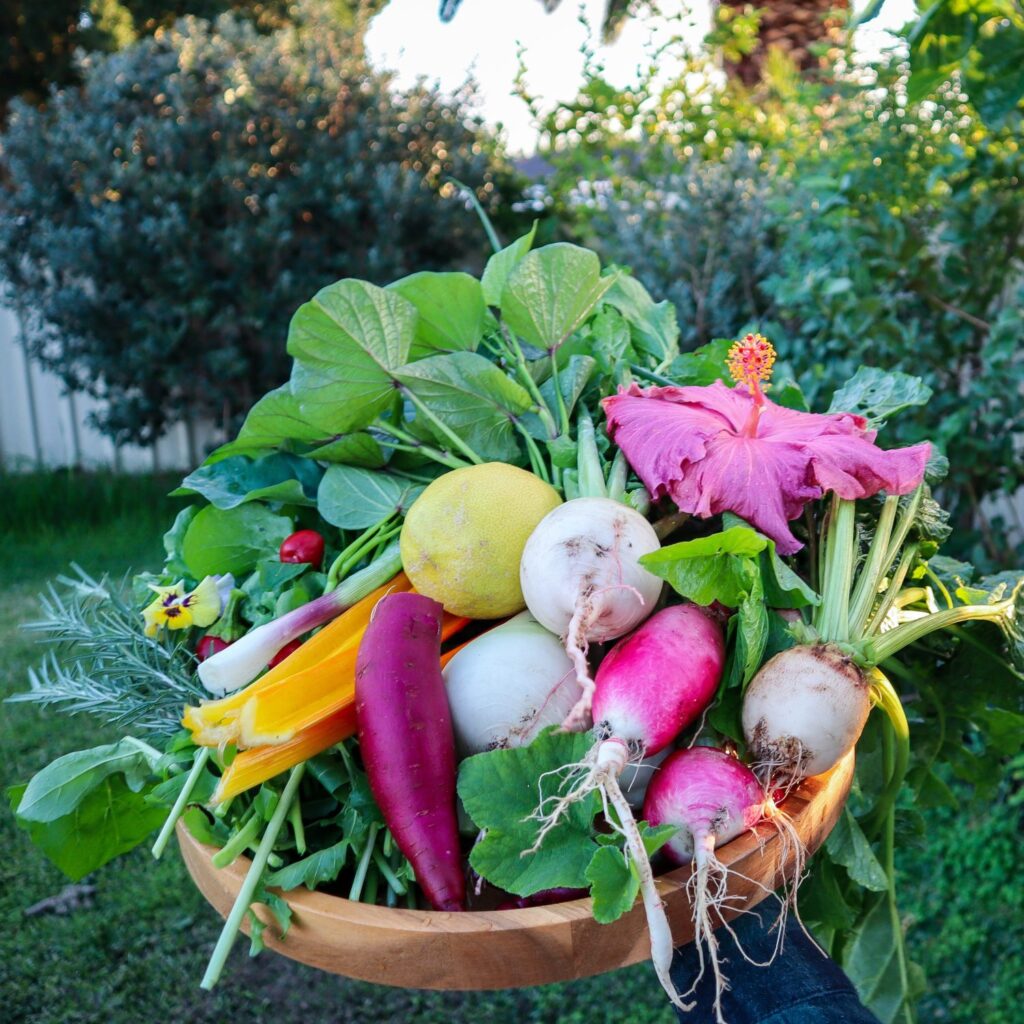
Control Bugs in the Veggie Garden Naturally
Dealing with bugs in the garden doesn’t have to mean reaching for harsh sprays or quick fixes. With a few simple, natural strategies, you can keep pests under control while still supporting a healthy, balanced ecosystem in your veggie patch. Caring for your soil’s health and your own at the same time.
I hope these tips help you feel more confident tackling any winter pest problems in your own garden! And remember, bug-bitten veggies are totally normal and even a sign that your garden is alive and thriving!
Want More Seasonal Garden Tips Like These?
Subscribe to my Tuesday Tips newsletter and get practical, organic garden advice delivered straight to your inbox each week 😊
Happy Gardening,
Holly 🌱
